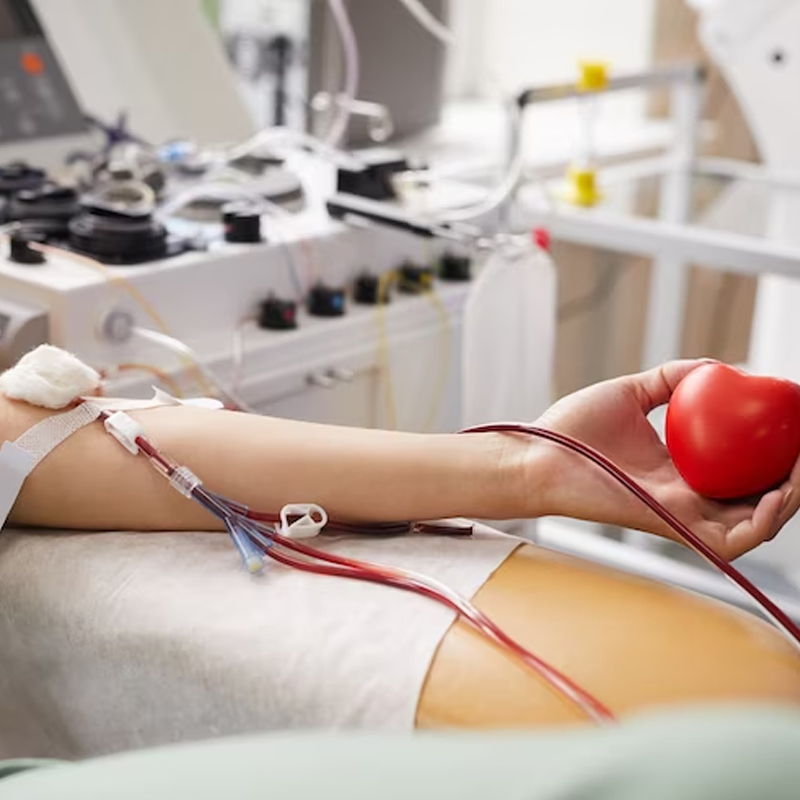
Blog
Decoding Dialysis: Understanding Hemodialysis and Peritoneal Dialysis for Kidney Health
Introduction
With 10% of the Indian population battling chronic kidney disease (CKD), and
over one lakh cases of renal failure annually, understanding dialysis becomes
crucial.
This guide explores the nuances of two primary dialysis types—hemodialysis
and peritoneal dialysis—shedding light on their procedures, advantages, and
considerations for those navigating the challenging landscape of kidney
disease.
When Do You Need Dialysis?
Delving into the signs of kidney failure and its potential complications, this section emphasizes the pivotal role of dialysis in maintaining health. Recognizing symptoms like nausea, fatigue, and decreased urine output, readers gain insight into when dialysis becomes a necessary intervention.
What is Hemodialysis?
Offering a comprehensive view, this segment elaborates on hemodialysis, detailing the artificial kidney process. It covers the initial steps, the role of a dialyzer, and the options—hospital-based, dialysis center, or home-based. Additionally, it explores the potential scenarios where long-term hemodialysis might be required.
What is Peritoneal Dialysis?
This section provides a detailed explanation of peritoneal dialysis, elucidating its distinct approach utilizing the abdomen's lining as a natural filter. It introduces Continuous Ambulatory Peritoneal Dialysis (CAPD) and Automated Peritoneal Dialysis (APD), outlining the catheter insertion process and highlighting the self-sufficiency of home-based treatments.
Hemodialysis Vs. Peritoneal Dialysis: Which One Is Right for Me?
Empowering readers to make informed decisions, this segment compares the pros and cons of each dialysis type. Factors like lifestyle, work commitments, and disease severity are discussed, aiming to guide individuals towards the most suitable treatment option aligned with their preferences and needs.
Advantages and Disadvantages
Advantages of Hemodialysis:
This part provides an in-depth look at the effectiveness of hemodialysis for
patients with reduced kidney functions. It also discusses home-based options
and the expertise of healthcare professionals. On the flip side, it addresses
potential drawbacks, including lifestyle disruptions, dietary restrictions, and
infection risks.
Advantages and Disadvantages of Peritoneal Dialysis:
Detailing the convenience of home-based treatments and fewer dietary restrictions, this section contrasts with the challenges of catheter discomfort and daily treatment requirements. It emphasizes patient responsibility for correct treatment execution.
Dialysis Treatments in Pragma Medical Institute
In conclusion, the guide highlights Pragma Medical Institute's commitment to enhancing patients' health and quality of life. With expert physicians specializing in individualized treatment plans, the institute ensures a patient- centric approach tailored to unique needs and lifestyles.